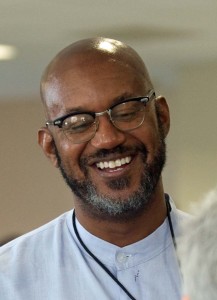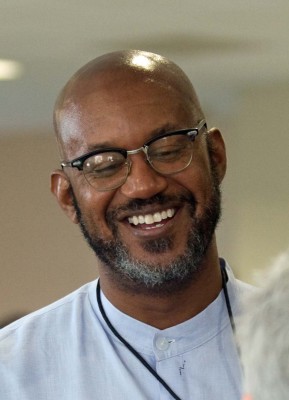
After teaching at EMU during the regular terms and at the Summer Peacebuilding Institute (SPI) for a number of years, this past September I began a PhD program at the University of Tilburg in the Netherlands, where my general area of study is Social Construction. This summer I will be teaching again at SPI, facilitating Multi-party Conflict Resolution as well as a training session for STAR: Strategies for Trauma Awareness & Resilience.
My social constructionist perspective impacts the way I frame multi-party conflict because in my estimation there is not one “reality” that we are helping people to see, but rather the process of multiparty mediation and consensus-building is to create a shared meaning and an agreement about how to collaborate and “perform the meaning” that is made.
STAR workshops combine aspects of psychosocial trauma, restorative Justice, conflict transformation, community peacebuilding, and spirituality toward the development of healthy individuals, communities, and societies. In STAR it is interesting to consider that all of those fields, even spirituality, can be thought of as metaphorical frames in a process of assisting individuals and communities in establishing positive peace. Negative peace is simply the absence of war; whereas Galtung and others describe ‘positive peace’ as a circumstance in which structural violence and the impediments to a high quality of life are also removed at the interpersonal, intrapersonal, societal, and global/environmental level.
Scholarship…
The focus of my PhD research, advised by John Winslade, will look for models of engagement that shift relations of power embedded in discourse concerning race in the US. The hope is that the principles identified will be applicable to other circumstances of multigenerational trauma and disparity. I am particularly interested in this topic because this is where I see many dialogue models (including some at the CJP) fall short by failing to consider (identify/unveil) the relations of power embedded in the cross-group engagement. I am considering methods for applying narrative mediation to individual and group healing and also in establishing systems and institutional arrangements that are founded in a discourse where power is equitably accessed.
Because my research is all about understanding discourse, I am surprised every day by the ways that our unspoken assumptions about situations and about each other limit the possibilities for loving and peaceful relationships. I am also motivated by the fact that sometimes just making these assumptions more visible changes how people relate to their present and future relationships.
…put into practice
For instance, in Atlanta and throughout the Southeast, I am actively involved in mediations at the systemic and policy level that impact community structures. Recently I’ve served as mediator to the Atlanta Public School Board and I’m now working with other school boards throughout the state to create methods of deliberation that minimize the operational stagnation resulting from values-based divisions. Basically, I am teaching people how to play nice and get work done even when they don’t have shared values.
I am also part of a team from the University of Georgia that will mediate the division of local tax revenues in several jurisdictions around the state. This may sound boring until we realize that the division of tax revenues determines the service levels for public safety, social services, educational improvements, and arts in each jurisdiction. These are equity and quality of life mediations hidden in tax code language!!
